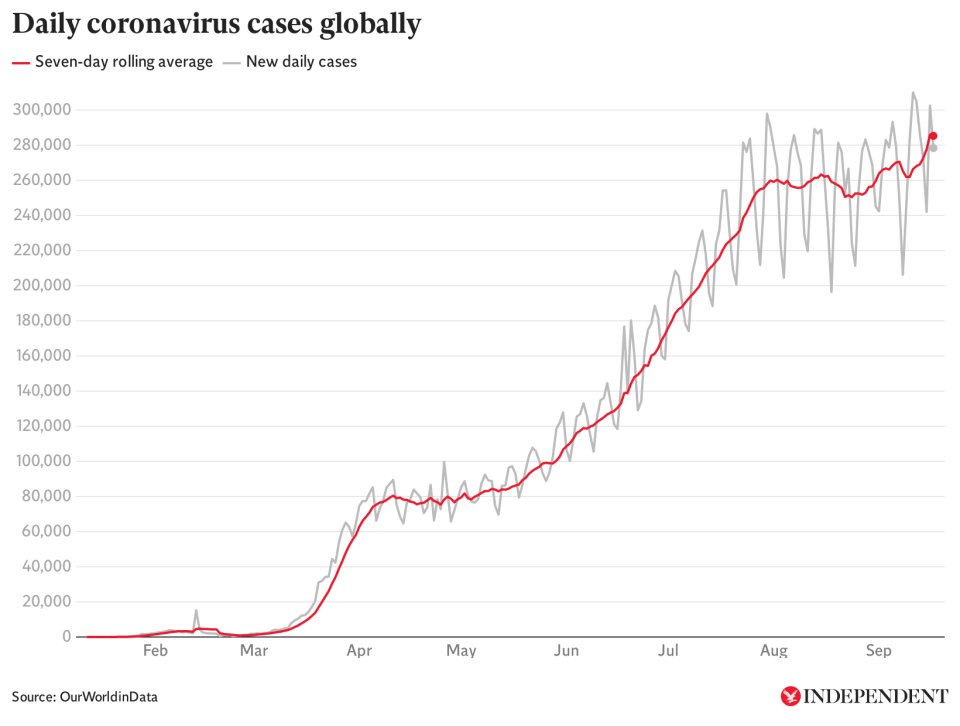Coronavirus tracked: Global cases pass 30 million, just five weeks after passing 20 million

The number of confirmed coronavirus cases globally has passed 30 million, as new infections continue to grow at an accelerating rate.
Daily cases around the world now average close to 300,000, up from around 200,000 per day in July.
The accelerating rate means that it has taken just five weeks to pass the latest 10m milestone, having taken six months to reach the first 10 million cases.
The majority of new cases come from just three countries – India, Brazil and the US – with India alone accounting for nearly a third of all new infections.
The US continues to have the highest number of total cases with close to 7 million, though new daily cases have dropped from above 60,000 in early August, to less than 40,000 in September.

Despite the dip, the US remains the second worst affected country in terms of new daily cases, behind only India where more than 90,000 cases are currently being recorded each day.
Other badly affected countries that saw a dramatic drop in infections following a first wave of the deadly virus are now seeing an even more severe second wave.
The surge in new cases has been particularly noticeable in Europe, after countries lifted strict lockdown restrictions in May and June.

The European director of the World Health Organisation warned on Thursday that Europe was experiencing “alarming rates of transmission”.
Dr Hans Kluge called for “regional coherence” to help stem the spread of Covid-19, after the region saw more than 300,000 confirmed cases over the last week.

Speaking at a press briefing, Dr Kluge said that many countries were “going into a worsening situation” and warned against public resistance to measures like face masks and quarantines that are needed to control the pandemic.
“At the moment… we see a fatigue and resistance in the behaviour that is helpful in fighting the virus,” he said.
“In the spring and early summer, we were able to see the impact of strict lockdown measures. Our efforts, our sacrifices paid off. In June, cases hit an all-time low. The September case numbers, however, should serve as a wake-up call for all of us."

 Yahoo News
Yahoo News 
